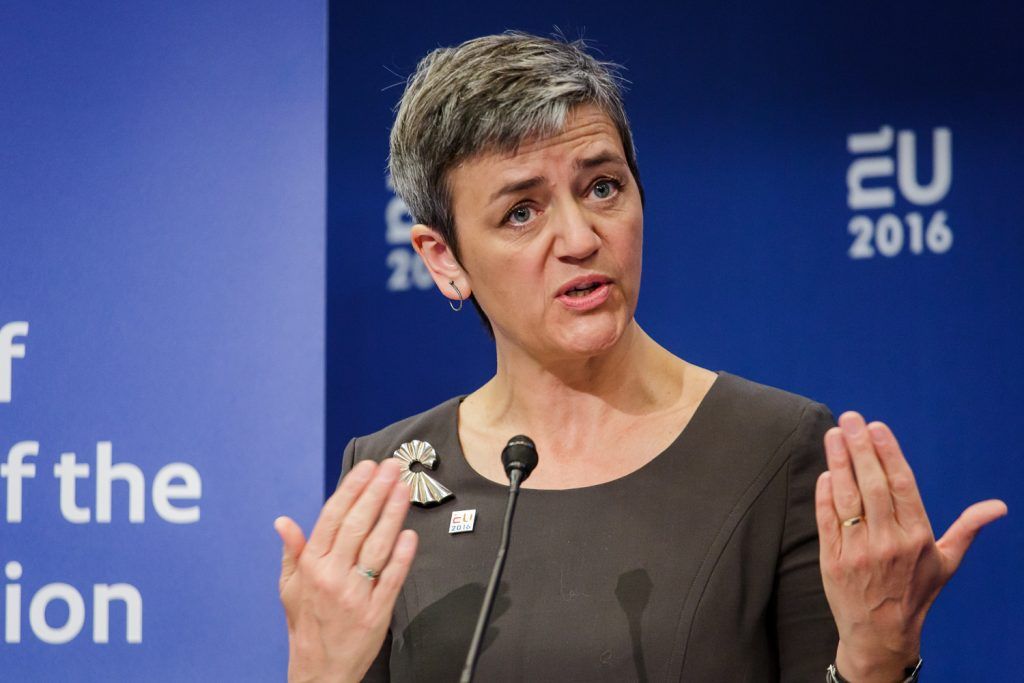The current European Commissioner for Competition and former economy and integration minister, Margrethe Vestager, has been named among Time Magazine’s 100 most influential people in the world.
Assigned to the ‘Titans’ section of the list (here in English), Vestager was given a short introduction write up by the former Danish PM, Helle Thorning-Schmidt, who said that Vestager was someone who could influence policy making and European co-operation.
“As the European Commissioner for Competition, Margrethe knows that the buck stops with her, and she makes the tough, controversial decisions as only a true leader can,” added Thorning-Schmidt, who is currently the CEO of Save the Children International.
“But Margrethe is not a technocrat. She bases all her decisions on the values that are close to her heart: fair play and opportunity for all. Europe needs more women like Margrethe Vestager.”
READ MORE: Vestager handed powerful EU Commission posting
EU’s iron lady
Aside from ‘Titans’, the other four categories were ‘Pioneers’, ‘Leaders’, ‘Icons’ and ‘Artists’ and included a wide range of individuals from Donald Trump, Riz Ahmed and Julian Assange to Lebron James, Chance the Rapper and Vladimir Putin.
Since taking over as European Commissioner for Competition in 2014, Vestager has stood up to a number of big corporations regarding tax issues, including Apple and Google.















